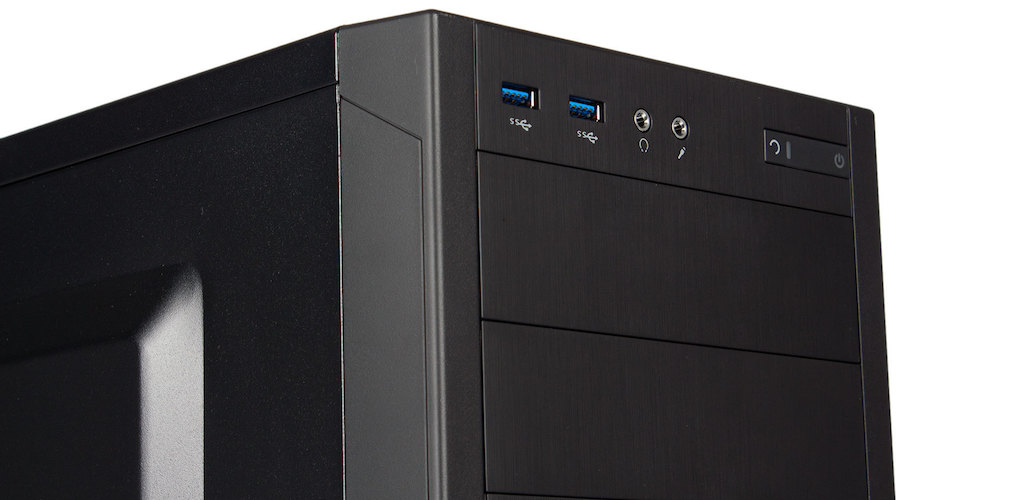Due to some recent happenings, I am suddenly in the need for a dedicated virtual machine rig. But I am also on a strict budget, so have to keep the costs as low as possible, and yet not skimp so much that the end result becomes unusable.
I had done some research on the subject of hypervisors, or virtual machine hosts, in the past and VMware ESXi seemed to be the best choice. So with that in mind, I set about digging in to the details of the current version of ESXI (6.0) and my hardware options.
One thing I learned very quickly is that ESXi is very picky about hardware. It’s getting better with every release, but the supported hardware list is still very small and leans strongly towards server-grade components like Xeon CPU’s, than consumer level hardware.
I had initially thought of going with AMD rather than Intel due to their significantly lower costs (although performance is also lower and you generally spend more on electricity from their higher TDP’s). But just a few minutes of Googling told me that the CPU’s I was considering gave quite a few problems to those who tried them with ESXi. So I dropped AMD and decided to go with Intel.
I had initially thought of going with a Core i3. But I am planning to running upto 10 VM’s at the same time, so an i3’s 2 cores seemed insufficient, so I went with the cheapest Core i5 I could find in the market – an i5-4460 3.2GHz quad-core.
On the memory front, I guesstimated that I needed around 16GB. 32GB would be best but I had to avoid any avoidable expenses.
The next thing I learned about ESXi was it’s measly support for network adaptors. It looked like I needed an Intel one to get it working with ESXi 6.0 without any hacks. Hacks are fine but they are unreliable and I need this rig to work without wasting my time on figuring things out and getting them working.
The market is flooded with Realtek network adaptors on most motherboards. My rough guess would be more than 90% of the motherboards on the market have Realtek ethernet. And Realtek is not supported by ESXi without driver injections.
There are a few boards with Intel network adaptors but they are rare and mostly on the more expensive ones. There are very few in the lower price range. One of them is the Asus B85M-GAMER and I found it for a reasonable price at the IT Depot.
With that out of the way, I went ahead and ordered all the parts from the IT Depot. I have had good experience with them in the past and their prices are competitive.
But on ordering, I was told that my chosen motherboard was not in stock and may (or may not) get restocked in a few days. Not willing to spend more time on an uncertain possibility, I started looking for alternatives. But as stated above, finding another inexpensive motherboard with Intel networking was nearly impossible.
At this time, I started looking at alternatives to VMware. What really caught my eye was Microsoft’s offering – Hyper-V. Turned out that it had been available since Windows Server 2008 and it’s latest version is in Windows Server 2012 R2 and Windows 8.1 Pro and Enterprise.
The most attractive bit is that it’s also available completely free in the form of Hyper-V Server – a trimmed down version of Server 2012 R2 with only Hyper-V and no other Windows Server functionality. This would also give it a small footprint, leaving more resources for my VM’s. This was a key reason for me having chosen ESXi in the first place. But now the decision had been made to scrap ESXi.
With ESXi out of the way, I could now choose almost any hardware. Windows would support it. So I checked with the IT Depot and ordered an alternative motherboard (yes, with Realtek network adaptor) that was readily available.
Here are the final parts ordered.
- Intel Core i5-4460 3.2GHz Processor – ₹14605
- MSI H97 PC Mate 32GB DDR3 Motherboard – ₹6840
- G.skill RipjawsX Series 16GB (2 x 8GB) DDR3 1600MHz – ₹8290
- Seagate Barracuda 1TB Hard Drive (ST1000DM003) – ₹3725
- Corsair VS Series VS450 450W Power Supply – ₹2310
- Corsair Carbide Series 100R Mid-Tower Case – ₹3485
All of the above and the prices are from the IT Depot.
Once the parts arrive and the build is completed, I’ll post an update.
